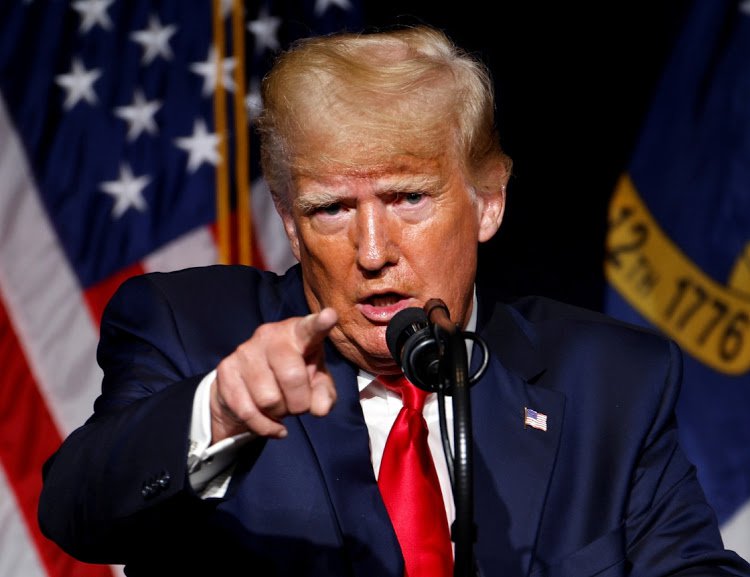Facebook suspended Donald Trump after his supporters attacked the U.S. Capitol on January 6. Now Facebook's rolling out new rules for all politicians and says under those rules, Trump can't come back for at least two years.
(SOUNDBITE OF ARCHIVED RECORDING)
NICK CLEGG: We're imposing the most serious penalty because of the gravity of what happened in early January.
SIMON: Nick Clegg, Facebook's head of global affairs, explaining that decision on a Brookings Institution podcast. NPR tech correspondent Shannon Bond joins us. And we will note Facebook is among NPR's financial supporters. Shannon, thanks for being with us.
SHANNON BOND, BYLINE: Good morning, Scott.
SIMON: Help us understand the timing here. Why are we hearing once again from Facebook about Donald Trump?
BOND: Well, back in January, when Facebook and other social networks kicked Trump off, Facebook said it was an indefinite suspension. But then it asked its new oversight board to weigh in. So this is a group of outside experts that Facebook has created to review its toughest decisions. And last month, the board said, you know, indefinite suspension — that's just not a fair penalty. It's not in Facebook's rulebook. It's not something the company has ever done before with a political leader. The board said Facebook needs to set clear rules and a time frame for a suspension like this. So now Facebook has rolled out this new set of rules, and it's applying them for the first time to Trump.

SIMON: And two years — what's the logic of two years?
BOND: Well, that's the maximum penalty laid out under these new rules, although Facebook has not explained why it landed on two years precisely as that upper limit. Now, these new rules, they're specifically about what Facebook should do when public figures — you know, people who have lots of followers, lots of influence — violate its policies during times of civil unrest and violence, really sort of extraordinary circumstances, like we saw on January 6.
Now, in Trump's case, Facebook starts counting that two-year penalty from January, when he was first suspended. When we get to January 2023, it's not just going to automatically let him back on. Facebook says it'll consider whether there's still a serious risk to public safety. And then, if he does come back, he will face stricter penalties up to the possibility of a permanent ban if he keeps breaking the rules.
SIMON: Does this decision also have, I guess, some implied meaning for other political leaders and public figures who are on Facebook?
BOND: Yeah. I mean, just creating these new rules, that's a big change in how Facebook treats political leaders. Mark Zuckerberg, the CEO, has long said political speech is already highly scrutinized. Now Facebook has announced another big change. It's not going to presume political speech is newsworthy and, therefore, exempt from its rules. That was a policy it had in place since 2019. So it'll be holding all politicians to largely the same rules as any other user on Facebook.
SIMON: What kind of reactions so far?
BOND: Well, we've heard from Trump. He's criticized Facebook, saying this is an insult to his supporters. But others, including civil rights and watchdog groups, are not happy either. They want to see Trump permanently banned like he was from Twitter. And they say these new policies, they create more questions than they answer, like how Facebook will handle other political leaders. People like Narendra Modi in India, Jair Bolsonaro in Brazil — they've really pushed the boundaries on social media, on Facebook. But unlike Trump, they are still allowed on Facebook.
SIMON: NPR tech correspondent Shannon Bond. Shannon, thanks so much for being with us.
BOND: Thanks, Scott.













